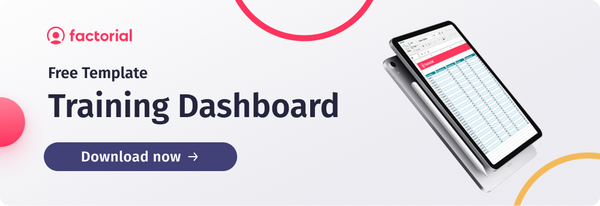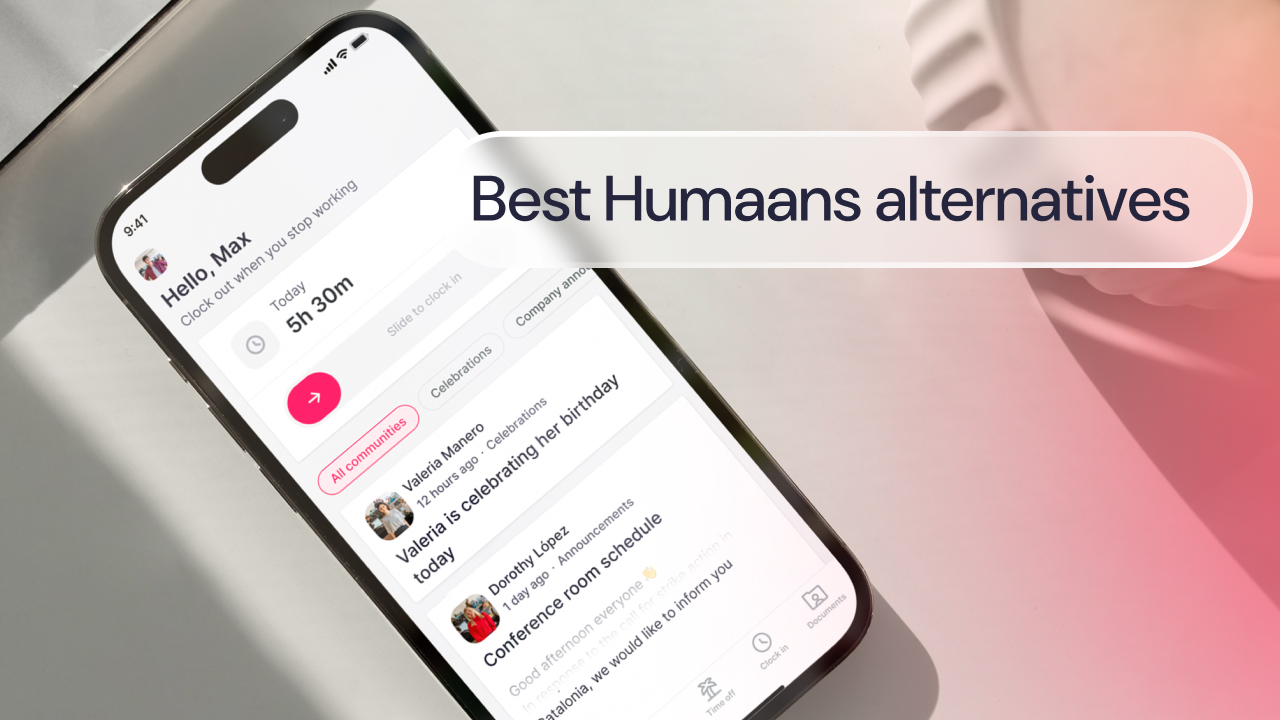The Human Resources function has changed dramatically in recent years. Even more so since Covid 19. HR leaders are now spending more of their time as HR enablers, becoming an essential strategic pillar for leading organisations.
In this article we’ll take a look at what it means to be an HR enabler, and how you can prepare yourself and your team to make this happen.
- The Evolution of HR
- What Does it Mean to be a HR Enabler?
- How People Teams Are Becoming Enablers
- ✅ Try Factorial Free for 14 Days
The Evolution Of HR
Traditionally, HR have been thought of as the team responsible for running the day-to-day of an organisation. This would have included things like payroll, company policies and contracts. HR didn’t have much impact on the strategic side of the business as it served a simple purpose. Many companies didn’t utilise its full potential as they could have.
However in recent years, and especially since the covid pandemic, the contribution of HR towards overarching business strategy has massively increased.
The increased use of technology and the ever-changing expectation of employees has seen the scope of HR teams evolve, with specific human resource strategies now being put in place in a large proportion of organisations.
HR strategy is now an essential part of many businesses, with more HR input being seen at the C-suite level from Chief People Officers and CHROs.
What does it mean to be a HR Enabler?
The term HR enabler is relatively new. The literal definition of an enabler is someone who makes something possible. That could also be the perfect definition of HR within an organisation.
HR leaders can’t just be controllers and coordinators who organise and distribute. Instead, employees now expect a strategic vision and direction from the People team.
How People Teams Are Becoming Enablers
So, what do HR and People teams need to do to not be perceived as the people who get in the way, but instead be seen as enablers?
Recognise And Appreciate That The Business Revolves Around People
It’s far too easy to get stuck in routines built around day-to-day processes. The core focus of all HR teams should be people, hence the shift in more and more organisations having People Teams.
This mindset can be worked into those day-to-day processes. By ensuring all company policies and guidelines put people first. This enables employees to focus on themselves and their personal performance, rather than worrying about overarching company policies that might be having a negative effect on the way they think about their work.
Another key aspect of enabling employees to be more positive about their role, is having specific and personalised job descriptions that are tailored to them. Generic role outlines for everyone on a team do not give employees the confidence required to do their job in a way that doesn’t feel constricting.
Job descriptions should also be reviewed regularly to ensure they still give the employee the independence they need whilst also keeping them connected to the corporate culture as a whole.

Actively Encourage Learning And Development
It is normal for companies to have learning and development (L&D) budgets for employees. Depending on the industry and the size of the organisation these budgets can be quite generous.
However, this doesn’t mean that your team is making the most of these budgets. L&D allowances often go untouched as employees feel like they don’t have the time or support required to take on new courses or learning opportunities.
Learning should be ingrained into the organisation’s culture. Individuals who continue to learn are much more likely to stay interested and engaged with their role. They are also more likely to be retained by the organisation and want to continue their upward progression.
There is also the fact that many people looking for new jobs now expect L&D opportunities and consider it a major factor in whether or not they will even interview for a new role.
People functions can enable their teams to be more engaged in the L&D process by actively encouraging staff to make use of it. This can be in the shape of specific days set aside for L&D tasks, or allowing unused budgets to roll over into the next year.
Empowerment
The term HR Enabler could be substituted for HR Empowerer. Any organisation can have policies that are forward thinking and revolutionary, but if the line managers who implement them are not on board then they will invariably fall flat.
Line managers need to be trained in how to enact policies, and in how to motivate and engage their teams.
They should feel confident in having constructive and honest career discussions with team members. The HR department should ensure they are giving these line managers the tools they need to become enablers themselves.
This could be in the form of regular training sessions, 1-1s with an HR team member who specialises in leadership skills, and (going back to a previous point) ensuring they are continuously learning and developing their management skills.
HR definitely has a huge role to play in developing line managers and helping them develop their team in turn.
Collaboration
You can’t do it all by yourself! Your team needs to be able to work closely with various other teams in finance, IT, marketing and more, to make sure your new strategies and methods make an impact.
Some organisations, especially larger ones, can be very compartmentalised with very little contact and communication between departments.
One of the first and most important strategies you will need to have in place is how you will approach other managers in the organisation, and how you will help them to implement your vision.
Lead By Example
Lead by doing. If your HR team has unususd L&D budgets, make sure everyone takes them, including you! Have detailed job descriptions for your team members, and make sure they’re empowered to make a difference.
In most businesses, you and your team in HR are going to be the ones who have to make the change first, to lead by example and show others it can be done successfully.
By having done it yourself, you’ll also be able to show other managers in your organisation examples of how strategies have worked, and also have readymade ideas for how to deal with issues when they arise.
Enable and Empower Employees with Factorial
Factorial’s all-in-one software converts clunky, manual processes into streamlined, effective ones, allowing your People team to focus more on people and less on processes.
By replacing excel spreadsheets and endless paperwork with a digital solution, you will remove the common roadblocks that HR come up against. Your HR team will be equipped with the tools they need to enact and enable rather than hinder and block.
Our HR software collates all of the processes related to time management, talent management and legal and finance in one place. This frees up valuable time that HR teams usually spend on administrative tasks, allowing them to focus on strategic decisions and improving company management.
✅ Try Factorial free for 14 days and support your People team to become HR enablers.


